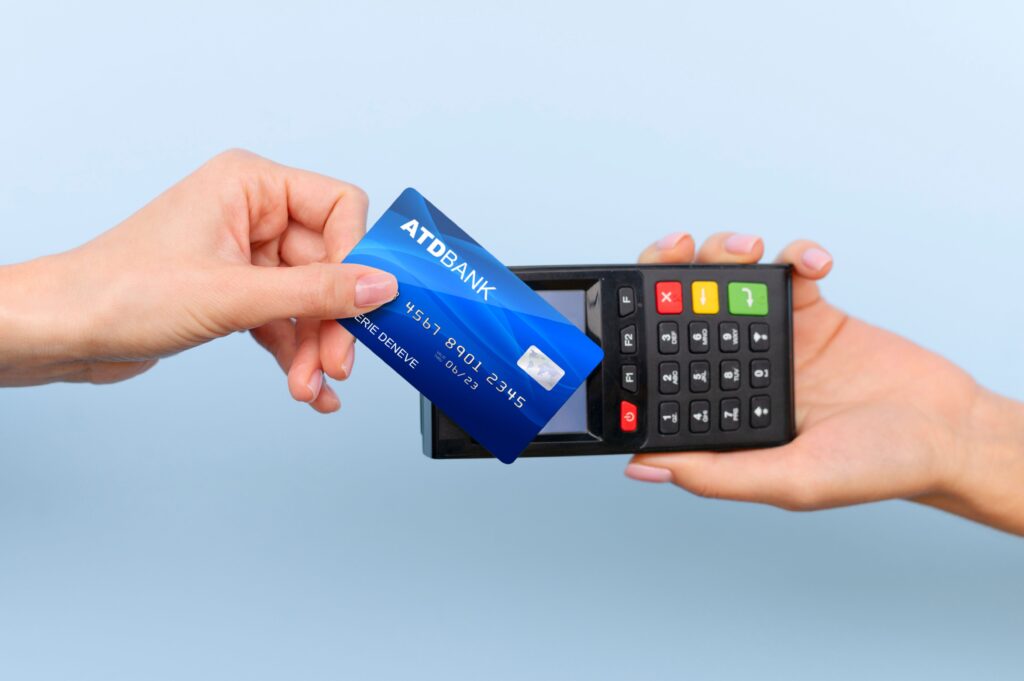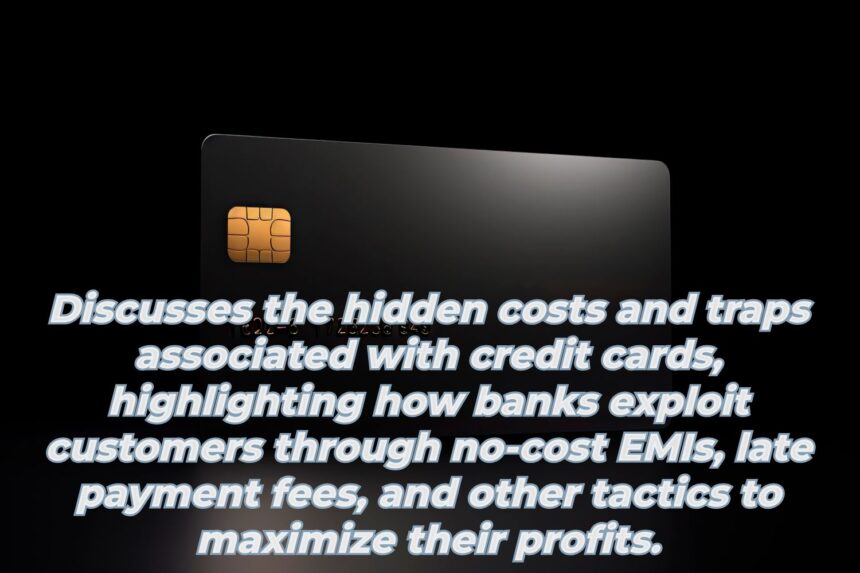Key moments
Banks offer No Cost EMI to entice customers into debt traps, using credit cards as a short-term loan tool, ultimately profiting from interest and transaction fees.
Credit cards provide easy access to short-term cash loans, enticing customers with offers like cashback and no cost EMI, leading to increased spending and bank profits.
Network companies like Visa and Mastercard facilitate seamless transactions between banks, ensuring data security and enabling cross-bank ATM and card usage for customer convenience.
Banks earn money through various charges and schemes like transaction fees, late payment charges, and tie-ups with companies. Issuer banks profit the most, leading to intense competition to issue credit cards.
Explanation of how banks earn money through credit card transactions and various charges.
Competition among banks to become issuer banks and offer credit cards to customers.
Overview of the tactics used by banks to promote credit cards and maximize profits.
Using credit cards for EMI options can lead to increased costs and debt traps. It is crucial to make full payments and avoid minimum payments to prevent financial pitfalls.
When using credit cards, it’s crucial to compare penalties, interest rates, and annual fees to avoid getting trapped in debt. Consider paying off high-interest credit card debt with a lower-interest personal loan for financial relief.
Importance of comparing credit card penalties, interest rates, and annual fees to make informed financial decisions.
Dealing with high-interest credit card debt by considering lower-interest personal loans for financial relief and timely repayment strategies.

How do credit card companies and banks earn money from each transaction?
Credit card companies and banks earn money from each transaction through a complex system involving multiple parties. Here is how they make money from credit card transactions:
- Network Company: Companies like Visa, MasterCard, American Express, and Rupay act as intermediaries in the transaction process. They charge a fee for verifying and approving transactions.
- Issuer Bank: The issuer bank is the bank that issues the credit card to the customer. They earn money through various means such as transaction charges, late payment charges, EMI interest charges, cash withdrawal fees, over-limit fees, annual fees, and point redeem schemes.
- Acquiring Bank: The acquiring bank is the bank whose machine the shopkeeper uses to deduct money from the credit card. They earn a portion of the transaction fee.
- Shopkeeper: The shopkeeper also earns a percentage of the transaction fee for accepting credit card payments.
In a typical credit card transaction, the network company verifies the transaction, approves the issuer and acquiring banks, and facilitates the transfer of funds. The issuer bank pays a portion of the transaction amount to the acquiring bank, keeps a portion as profit, and the acquiring bank pays a fee to the network company. This system allows all parties involved to earn money from each transaction.
What are the potential downsides of using credit cards, and how can one avoid the debt trap?
Using credit cards can have several potential downsides, including:
- High-Interest Rates: Credit cards often come with high-interest rates, which can lead to significant debt if not managed properly.
- Debt Trap: Making only minimum payments can lead to a debt trap, where the outstanding balance continues to accumulate interest, making it challenging to pay off.
- Hidden Fees: Credit cards may have hidden fees such as late payment charges, annual fees, cash withdrawal fees, and over-limit fees, which can add up quickly.
- Impulse Spending: Credit cards can make it easy to overspend and buy things on impulse, leading to financial strain.
To avoid falling into a debt trap when using credit cards, consider the following tips:
- Pay in Full: Always try to pay your credit card balance in full each month to avoid accruing interest charges.
- Monitor Spending: Keep track of your credit card expenses and set a budget to avoid overspending.
- Avoid Minimum Payments: Try to pay more than the minimum amount due to reduce the overall interest and pay off the balance faster.
- Limit Credit Card Usage: Use credit cards for necessary purchases and avoid using them for impulse buys or non-essential items.
- Understand Terms and Conditions: Familiarize yourself with the terms and conditions of your credit card, including interest rates, fees, and payment deadlines.
- Avoid Cash Advances: Cash advances on credit cards often come with high fees and interest rates, so it’s best to avoid them.
By being mindful of your spending, making timely payments, and understanding the terms of your credit card, you can avoid falling into a debt trap and make the most of the convenience that credit cards offer.
What are the key factors to consider when choosing a credit card, and how can one use it responsibly?
When choosing a credit card, it’s essential to consider the following key factors to ensure you select the right card for your financial needs:
- Interest Rates: Look for a credit card with a low-interest rate, especially if you anticipate carrying a balance. Compare the annual percentage rate (APR) of different cards.
- Fees: Consider the annual fees, late payment fees, cash advance fees, and any other charges associated with the credit card. Choose a card with minimal fees.
- Rewards and Benefits: Evaluate the rewards programs, cashback offers, travel benefits, and other perks offered by the credit card. Select a card that aligns with your spending habits and lifestyle.
- Credit Limit: Understand the credit limit offered by the card and ensure it meets your financial needs without encouraging overspending.
- Introductory Offers: Check for any introductory offers such as 0% APR for a certain period or bonus rewards. Be aware of the terms and conditions associated with these offers.
- Credit Score Requirements: Some credit cards require a good credit score for approval. Make sure you meet the eligibility criteria before applying.
To use a credit card responsibly, follow these tips:
- Pay on Time: Always pay your credit card bill on time to avoid late payment fees and negative impacts on your credit score.
- Monitor Spending: Keep track of your credit card transactions and stay within your budget to avoid overspending.
- Avoid Cash Advances: Cash advances on credit cards come with high fees and interest rates. Use them sparingly, if at all.
- Pay in Full: Whenever possible, pay off your credit card balance in full each month to avoid accruing interest charges.
- Review Statements: Regularly review your credit card statements to check for any unauthorized charges or errors.
- Limit Usage: Use your credit card for necessary purchases and avoid impulse buys to prevent accumulating debt.
By considering these factors when choosing a credit card and following responsible credit card practices, you can make the most of your card while maintaining financial stability and avoiding debt.





